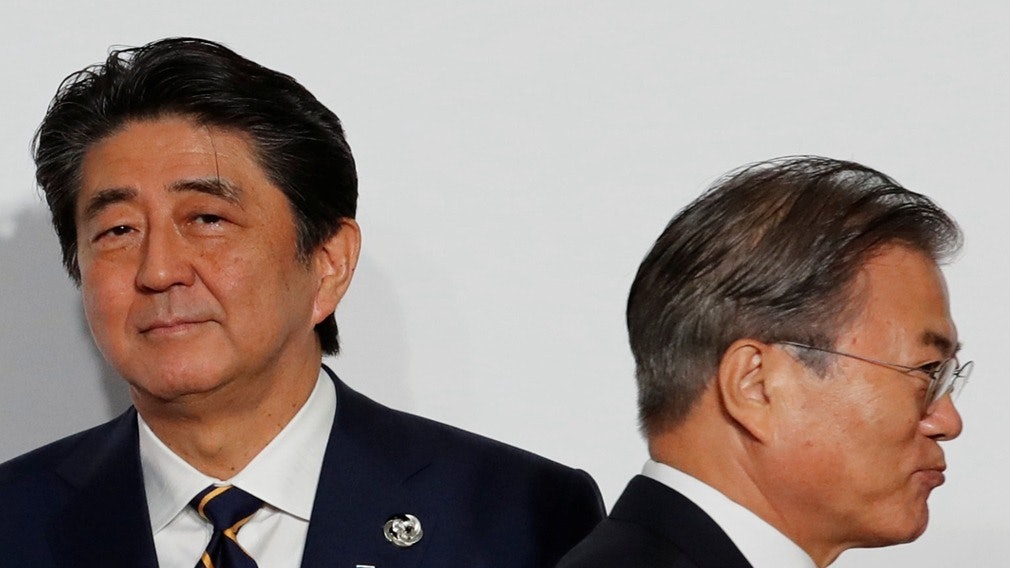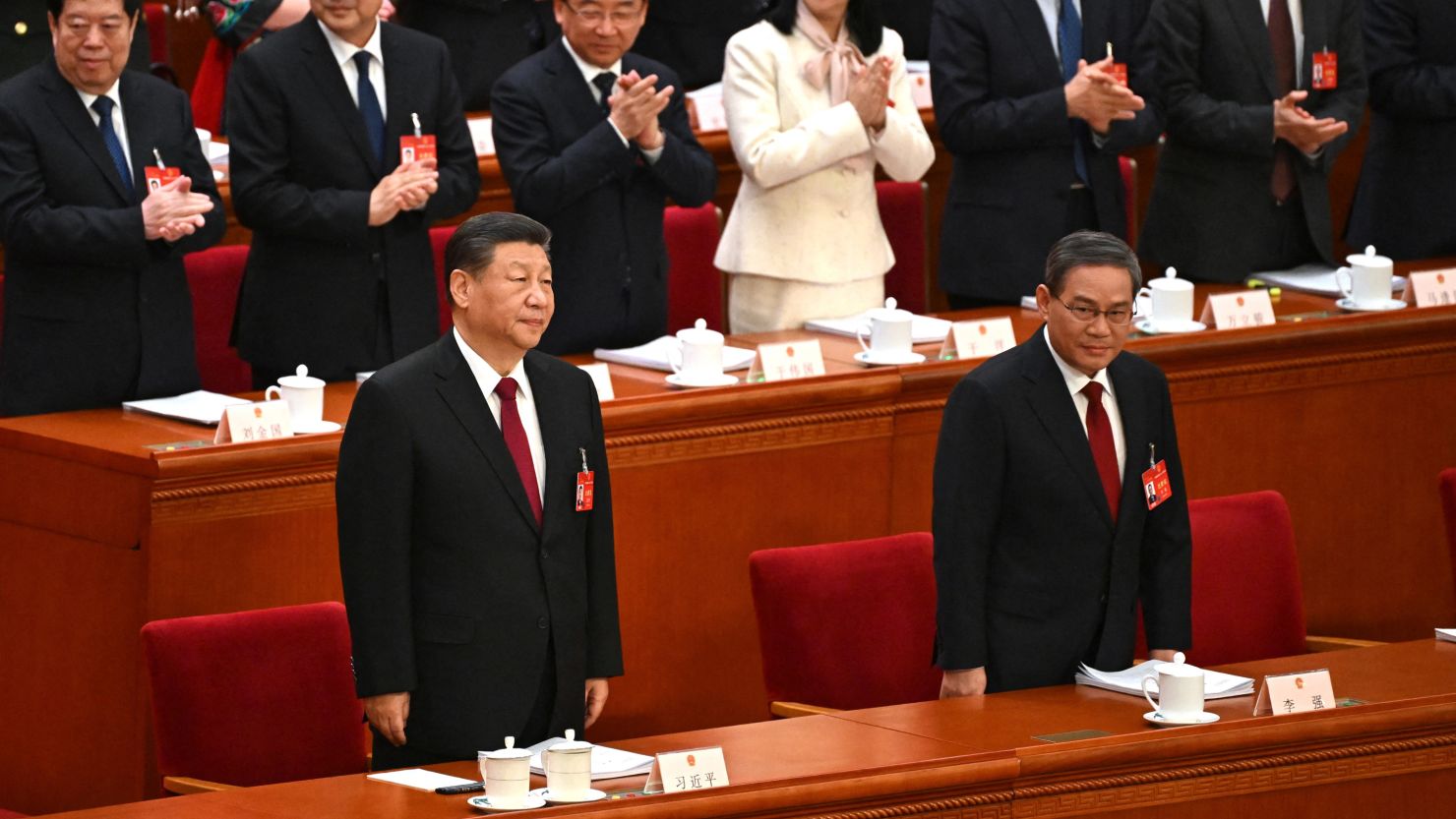The dispute between Japan and South Korea does not seem to be intended to stop here. On August 25, South Korea conducted a large-scale defensive exercise in the disputed island of Dokdo, Japan (called Zhudao, Japan), which once again caused concern.
Earlier on August 22, South Korea’s Qingwatai officially announced that it would no longer renew the Agreement on Military Intelligence Protection (hereinafter referred to as the Agreement) with Japan. The first National Security Office of the Republic of Korea has announced the above decision and said that the ROK will inform the Japanese side through the diplomatic channels within the time limit set by the Agreement that the decision to not renew the Agreement will be notified.
South Korea’s decision has undoubtedly caused the dispute between the two countries to be clouded again. This again proves that the mediation of US Secretary of State Mike Pompeo and National Security Advisor John Bolton failed.
US Secretary of State Mike Pompeo, who is on a visit to Canada, was disappointed with the decision of South Korea to terminate the agreement on August 22. US Defense Department spokesman Dave Eastburn also commented on August 22nd that he was deeply worried and disappointed that the government decided not to extend the Korea-Japan Military Intelligence Protection Agreement.
Bolton visited South Korea from July 23 to 24. I visited Japan from July 21st to 22nd. According to US President Donald Trump’s statement on July 19, Bolton’s mission was to go to Japan and South Korea to mediate diplomatic and trade disputes between the two countries at the request of the South Korean President’s Moon Jae-in government. That is, labor issues and Japan’s efforts to strengthen the export control of semiconductor materials.
At the Foreign Ministers Meeting in Bangkok, Thailand in August, Pompeo held talks with South Korean Foreign Minister Kang Jing and Japanese Foreign Minister Yohei Kono to hold talks between the US, Japan and South Korea foreign ministers in an attempt to mediate disputes between the two sides. It is reported that Pompeo urged Japan and South Korea to continue to cooperate and move forward, and asked Japan and South Korea to ease the deepening of the opposition due to Japan’s strengthening of export control over Korea and the original labor issue.
Judging from the scene pictures that flowed out at the time, Kang Jing and the whole process were very serious, and there was no smile from the beginning to the end. In order to ease the tension between the two sides, Pompeo also took pictures with two foreign ministers. However, the two mediations in the United States obviously have no effect. The dispute between South Korea and Japan continues to escalate. Today, South Korea is not the best proof of the renewal of the Agreement.
The analysis believes that the failure of the ROK to renew the “Agreement” will affect the future cooperation between Japan, the United States and South Korea on the DPRK issue, and the future deterioration of Japan-ROK relations will be inevitable. The Japanese government immediately protested the decision of South Korea not to renew. Japanese Foreign Minister Taro Nono called the South Korean ambassador to Japan on the same day to protest against South Korea’s move. Kono said that the decision of the ROK is a complete misjudgment of the current regional security environment, and he deeply regrets this.
As a common ally of South Korea and Japan, the United States has previously acted as a “harmony” to ease the conflict between Japan and South Korea.
It is not uncommon for the United States to mediate before the two major alliances of Japan and South Korea, but there are not many successful cases. At most, the contradictions between the two are temporarily suppressed, and the problems cannot be solved. During Barack Obama’s time, Vice President Joe Biden came to adjust the tensions caused by Japanese and Korean women, such as comfort women and labor, but the results were not satisfactory.
On the issue of Japan and South Korea, the United States has never had a good policy or prescription. This is a big dilemma between the United States and its allies. As the ally, when the United States wants reconciliation between Japan and South Korea, Japan and South Korea are only symbolic reconciliations, and then make the most of these two alliances. But sometimes, the United States will also be accused of “thickness and thinness” between Japan and South Korea, and it is difficult to achieve a true balance.
In addition, Trump does not value “allies”, which also makes it impossible for the United States to find a better solution on the second issue.
Another important factor is related to China’s changing role in regional affairs. China does not want Japan and South Korea to have a bad relationship with each other, affecting the situation in the Northeast and cooperation in other regional affairs. Since the United States cannot mediate, will China, as Japan’s and Japan’s largest neighbor, play a role in promoting reconciliation between the two countries?
On August 21st, the ninth China-Japan-ROK Foreign Ministers’ Meeting was held in Beijing, China. Chinese State Councilor and Foreign Minister Wang Yi presided over the meeting of the three foreign ministers. Kang Jing and Mr. Kono also arrived. This time the meeting was considered by the outside world to be a gesture of China to mediate the dispute between Japan and South Korea.
On the night before the meeting, Wang Yi mentioned with the two foreign ministers that China, Japan and South Korea are countries with a long history. “History has given us important revelations and profound lessons. We have come from history, we cannot forget history, we cannot avoid history, and we can face the future and open up the future only by facing history.”
Wang Yi also pointed out that China, Japan and South Korea are all important economies in the world. Under the current prevalence of unilateralism, whether it is due to the respective interests and common interests of the three countries or the common aspirations of the international community, they should all unite and welcome together.
Wang Yi’s “persuasion” is not only satisfactory to South Korea, but also does not make Japan feel uncomfortable. However, considering that the meeting is held in Beijing, Wang Yi’s remarks may also be based on the attitude of the host. Moreover, from the focus of the three foreign ministers’ consultations, mainly the Korea-China-Japan Free Trade Agreement (FTA) and the Regional Comprehensive Economic Partnership Agreement (RCEP) and the denuclearization of the Korean Peninsula are not disputes between Japan and South Korea.
After all, Japan and South Korea have long been in disputes and have always been a difficult relationship between the two countries. As a Chinese that has similar “sickness” with Japan, it has rarely been involved in the disputes between Japan and South Korea. This should not be an exception. China does not seem to have any intention to intervene in the Japanese and Korean festivals, and it also limits the effectiveness of Wang Yi’s “mediation”.











